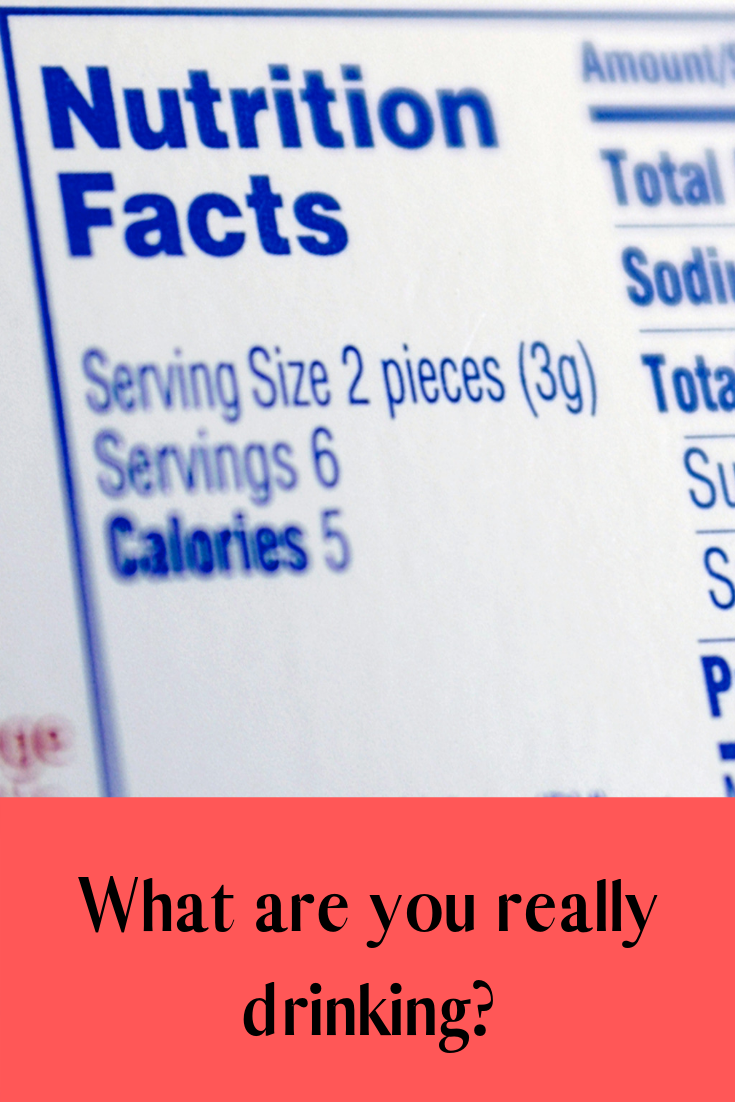Do you read the nutrition labels on your wine?
Now that you’re thinking about it, you can’t recall seeing very many, can you? I can’t recall seeing a single one.
Turns out that’s a bit of a trick question. Wine (and other high ABV liquor) isn’t required to have a nutrition label.
Leaving aside the sheer insanity of that failure of regulation, that means wine and liquor can have additives in it that you’re not aware of. There are a good number that are approved for use, but do not need to be disclosed to people, like magnesium sulfate, calcium pantothenate, folic acid, polyvinyl-pyrrolidone (PVP)/ polyvinylimadazole (PVI) polymer, and other terrifyingly complex-sounding compounds. It’s unlikely such a drink will have eggs or nuts in it, but if it did, you wouldn’t know unless they decided to tell you.
It also means that you can’t easily compare between options to identify the “healthiest” one. While of course it’s best to not drink at all, wouldn’t you rather know if one wine has low calories or low sugar, or another has high levels of anti-oxidants? Right now, it’s down to what each individual producer decides to disclose, so it’s very hard to make comparisons with one touting the benefits of its beverage and obscuring the downsides.
This strange circumstance is a result of Prohibition. That meant, with some exceptions (wines with less than 7 percent alcohol and beers that don't have malted barley actually fall under FDA rules, per this awesome Vox article), alcohol isn’t regulated by the FDA (which has required nutrition labels on all packaged foods as of 1990, but by the Alcohol and Tobacco Tax and Trade Bureau, which sets different rules, mostly regarding disclosing a beverage’s alcohol percentage if it’s over 14%. Gee, how generous.
Multiple efforts over the years have failed to get these labels applied to alcohol due to vociferous lobbying on the part of alcoholic beverage companies, who for obvious reasons would rather not remind people how many calories are in a typical drink (it’s about 100-200 calories per drink. You do the math on a typical drinking night for you).
We can’t help you track the nutrition content of your drinks, but we can help you track your drinking. If you’re cutting back or quitting, it can really help to set a healthy drinking limit and keep track of how many drinks you have, as well as the circumstances of your drinking. Over time, it can lead you to realize why you drink and seek healthier, alternative ways to get that same feeling. And as one of our reviewers noted, Drinker’s Helper is so much more than a drink counter. We provide a support group of similar drinkers and motivational exercises based on cognitive behavioral therapy and motivational enhancement therapy. Give it a try today!



